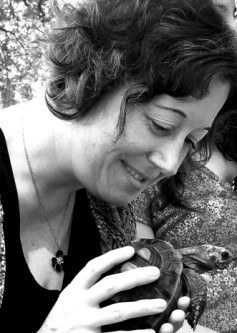
I was just putting some finishing touches on this week’s article for Sowing Holy Questions which was going to be a piece about politics around the holiday dinner table, and then I saw breaking news of another violent incident in an unexpected place, this time a Texas church. Grief and a conversation with my daughter compelled me to scrap that article and start over, beginning with this question: What does a helpful response to violence look like?
Making Sense of Violence
Each time we hear of another killing, it’s devastating. When I discovered my thirteen year old daughter had already come across the story this week, we processed it and reflected on how difficult it is to hear one incident like this after another. Attacks on peaceful crowds in churches, at concerts, on bike trails, at clubs, at schools, in movie theaters… they leave us with a lot of unanswered questions: “Why do people inflict such violence on others?”; “What were these people’s motives?”; “Were they mentally ill?”; “Could we have prevented these tragedies somehow?”
I tend to think questions like these do have answers, but that they’re not simple ones; multiple factors tend to be involved. Access to weapons is one factor. So is trauma, loneliness, broken relationships, hopelessness, spiritual desolation… we may not want to think about it this way, but the human brain has limitations and can only tolerate so much stress.
It may be disturbing to think we’re not able to isolate enough of the factors to satisfactorily explain why some people act out violently and others do not. But if we knew the reasons, would it make the pain easier to bear? Every act of violence leaves a gaping wound in the lives of loved ones and in the fabric of our communities, and the question “Why?” may be less helpful than the question, “What do we do?” How can we make a real difference in one another’s lives?
Basic Wound Care
When we’re feeling and experiencing the emotional wounds of violence, what does it look like for us to show up and provide “basic wound care” for one another? Wounds from our fellow human beings can feel raw and tender; each new incident may serve to open the wounds back up again. Jesus experienced wounding, too, from people who threatened Him and His loved ones—people who meant Him harm. And somehow He remained committed to love… how did He do that? How did He keep His wounds “clean?” What can we do to sterilize and detoxify our collective wounds? How do we keep our wounds from festering?
Responding to Violence
Perhaps emotional “wound care” starts with attending to one another. When violence intrudes on the places we thought were safe, one thing that can make a huge difference is knowing we’re not alone. And we provide this comfort when we instinctively reach out to those who are hurting. When I look around, I see us doing that for one another in a number of ways: by showing up, praying together, holding up the memories of those lost, grieving and crying together… lamenting the choices of our fellow human beings… naming difficult truths… singing songs, cooking meals, creating art… writing letters… lobbying officials… telling stories so they won’t be forgotten.
These practical acts of wound care after a tragedy may feel difficult because, compared to acts of violence, they can seem small and inconsequential. But we might think of them as being like tiny seeds that can grow into a huge sheltering tree. The first epistle of John reminds us, “God is Love”, and the love we express allows God’s presence to be tangibly experienced by others. In practicing these acts, we’re refusing to let violence take us over. We may still worry at times that it’s not enough, but could it in fact be everything?
Questions for further reflection:
“What ‘basic wound care’ do I need right now?”
“What unique way can I offer ‘basic wound care’ to others?”
 Gena Minnix, Ph.D. serves as Assistant Professor of Counselor Education in the Masters of Clinical Mental Health Counseling program at the Seminary of the Southwest. Her research specialties include Relational Cultural Theory, neurobiology, and the integration of psychology and theology.
Gena Minnix, Ph.D. serves as Assistant Professor of Counselor Education in the Masters of Clinical Mental Health Counseling program at the Seminary of the Southwest. Her research specialties include Relational Cultural Theory, neurobiology, and the integration of psychology and theology.

